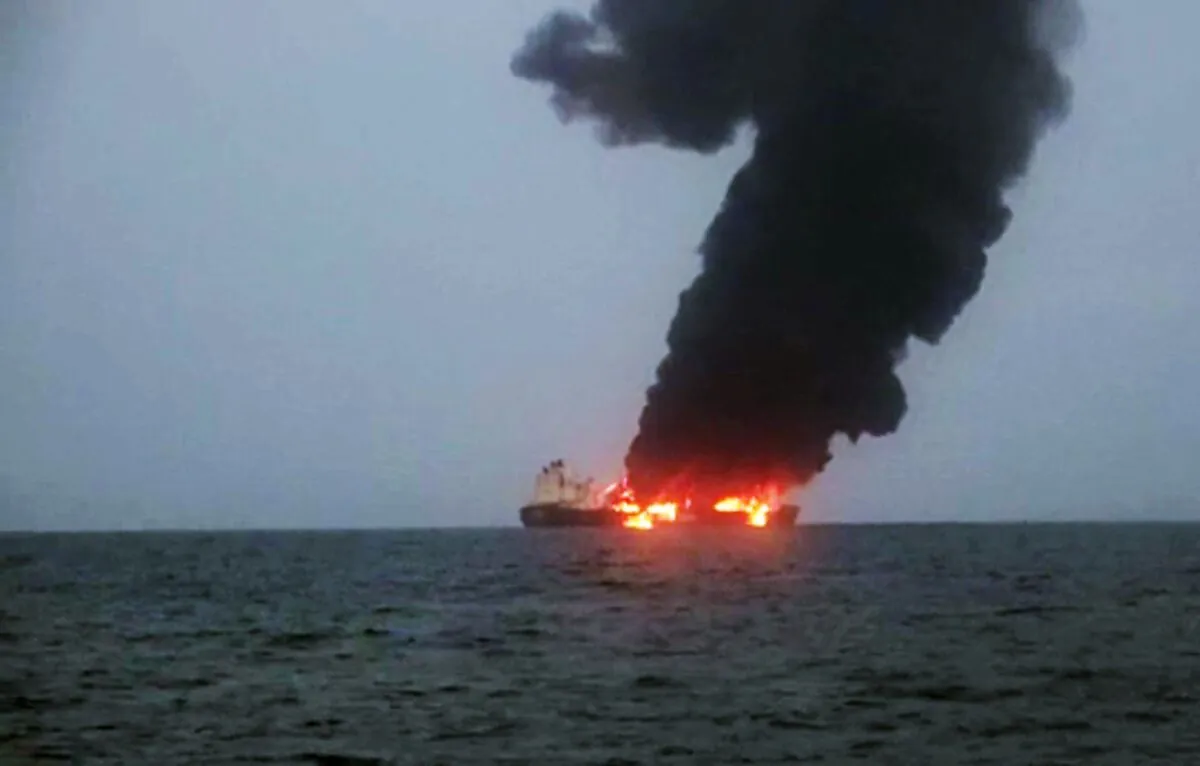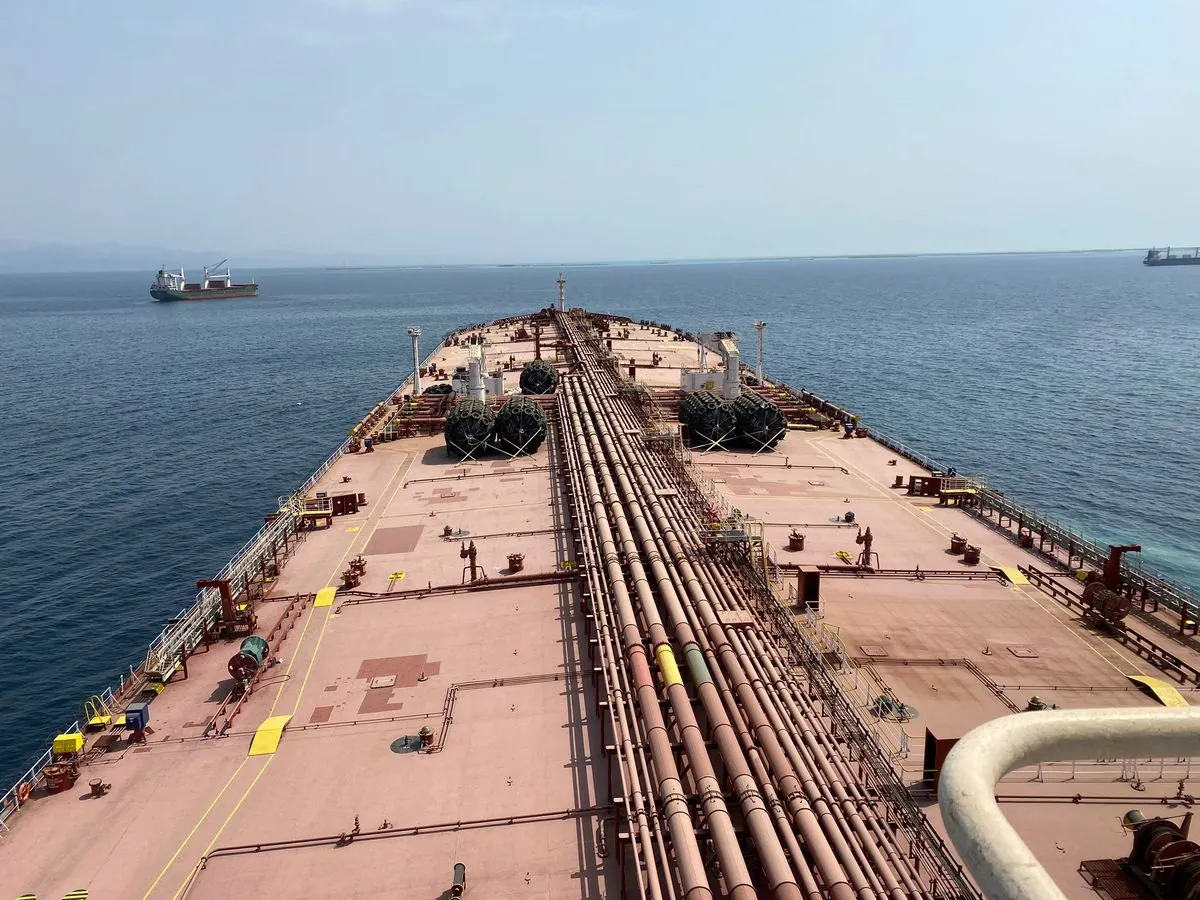EU Naval Mission Reports No Oil Spill from Burning Greek Tanker in Red Sea
EU's Aspides mission confirms no oil spill from Greek tanker Sounion in Red Sea, despite ongoing fires. Houthis agree to towing as EU and Pentagon monitor the situation to prevent environmental crisis.

The European Union's naval mission Aspides has reported that no oil spill has been detected from the Greek-flagged oil tanker Sounion in the Red Sea, despite multiple fires on its main deck. This incident, which began on August 23, 2024, has raised concerns about potential environmental impacts in one of the world's busiest shipping lanes.
The Red Sea, a seawater inlet of the Indian Ocean, is home to diverse marine life, including coral reefs and endangered species. Its strategic importance for global trade, connecting to the Suez Canal, underscores the urgency of addressing maritime incidents in the region.
On August 28, 2024, the Houthis, a Yemeni Zaidi Shia Islamic political and armed movement, agreed to allow the towing of the Sounion. This development came five days after the vessel caught fire, highlighting the complex geopolitical factors at play in maritime security operations.

The EU mission Aspides, part of the European Union Naval Force (EU NAVFOR) operating in the Red Sea and Gulf of Aden, has expressed readiness to "facilitate any courses of action" in coordination with European authorities and neighboring countries. Their primary goal is to avert a catastrophic environmental crisis, recognizing the potential devastating effects oil spills can have on marine ecosystems and coastal communities.
Pentagon spokesperson Sabrina Singh provided additional details on the situation:
"The barrels of crude oil being carried by the Sounion were intact but the vessel itself was leaking some oil from where it was hit and multiple fires were still burning."
This statement confirms that while the main cargo remains secure, the ship's integrity has been compromised, leading to a localized oil leak. The ongoing fires present a significant challenge, given the flammable nature of the tanker's cargo.
It's worth noting that modern oil tankers, like the Sounion, typically feature double hulls to prevent spills in case of accidents. However, the current incident demonstrates that even with such safety measures, maritime disasters can still pose serious threats to the environment.
The Red Sea's unique characteristics, including its high salinity and temperature, make it particularly vulnerable to environmental disturbances. As international maritime law governs the response to ship fires and potential oil spills, the ongoing situation with the Sounion requires careful coordination among multiple parties.
As efforts continue to address the burning tanker, environmental monitoring likely involves satellite imagery and aerial surveys to assess the extent of the damage and potential spread of any leaked oil. The incident serves as a reminder of the delicate balance between global trade and environmental protection in critical maritime regions like the Red Sea.


































